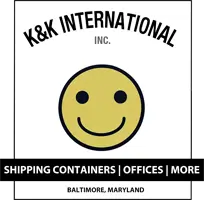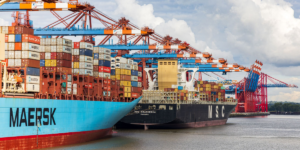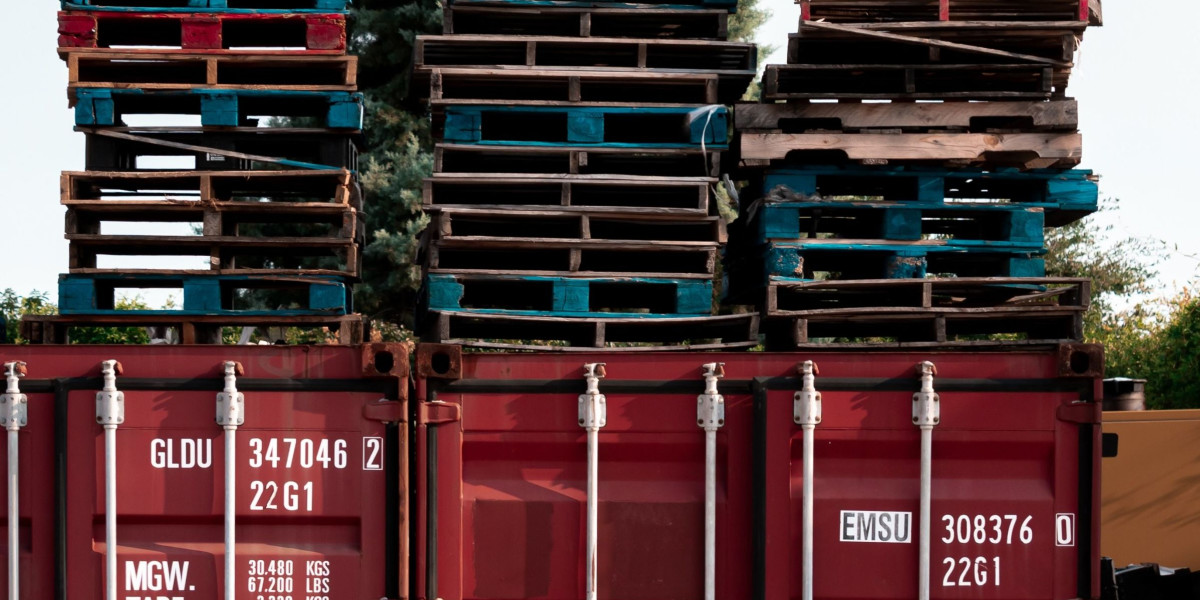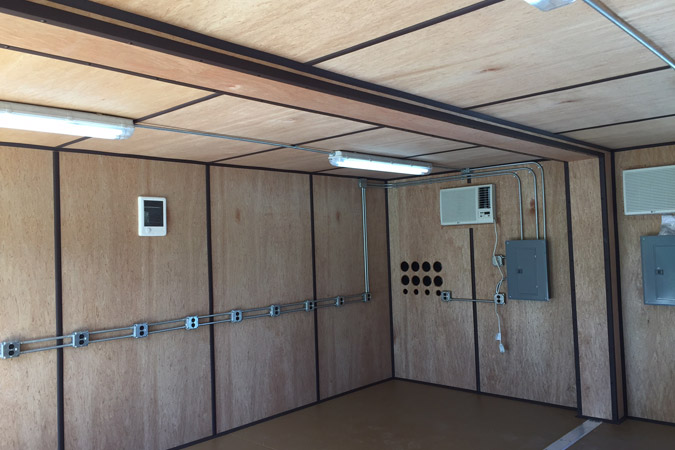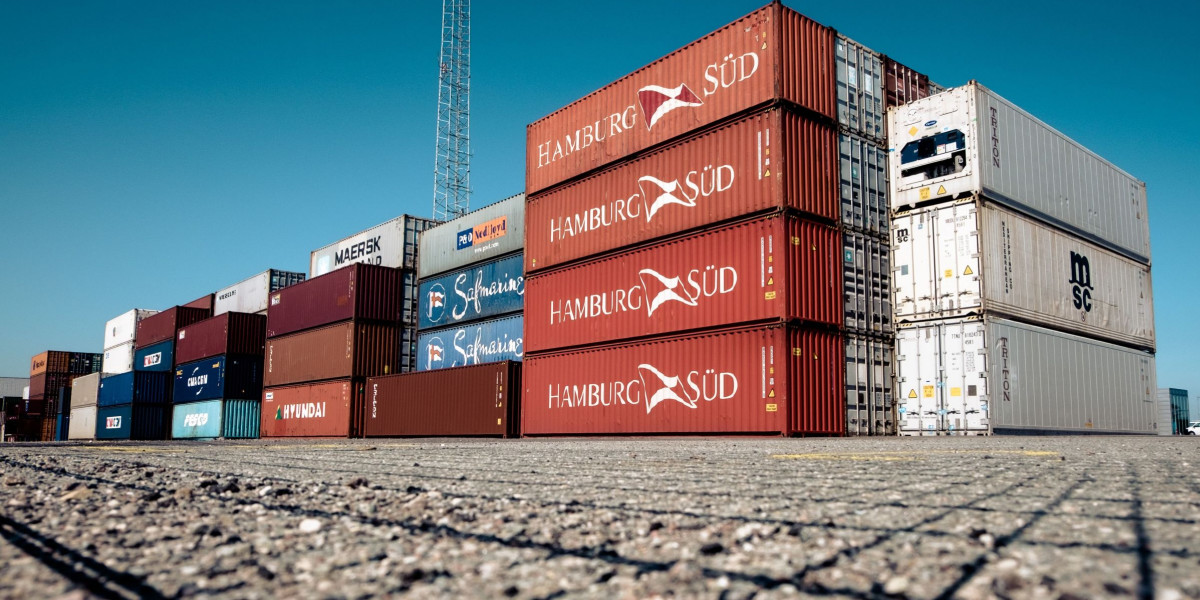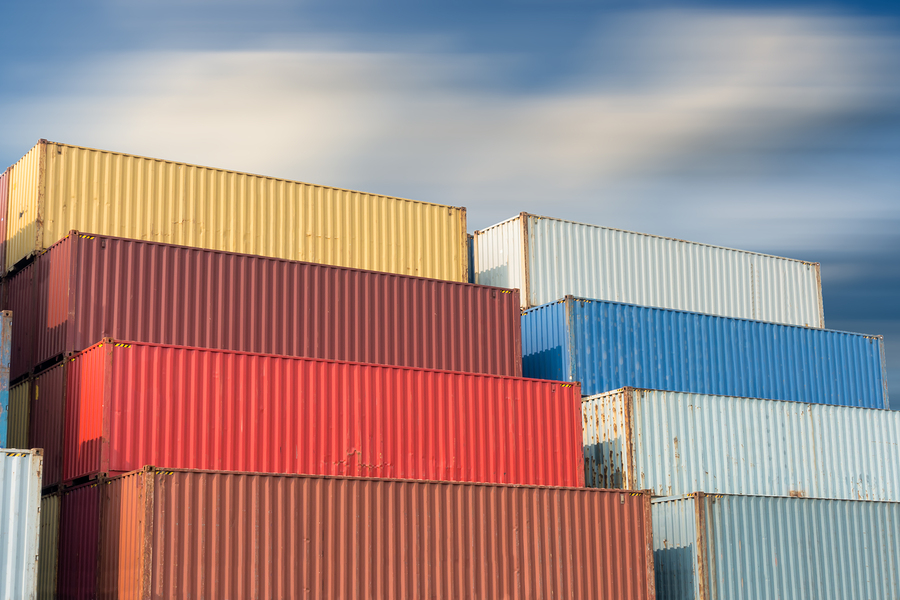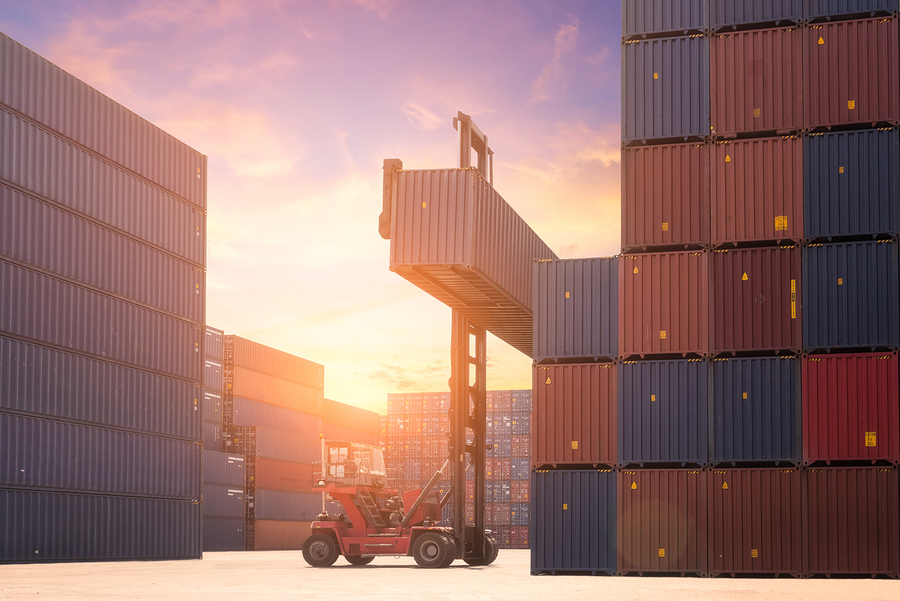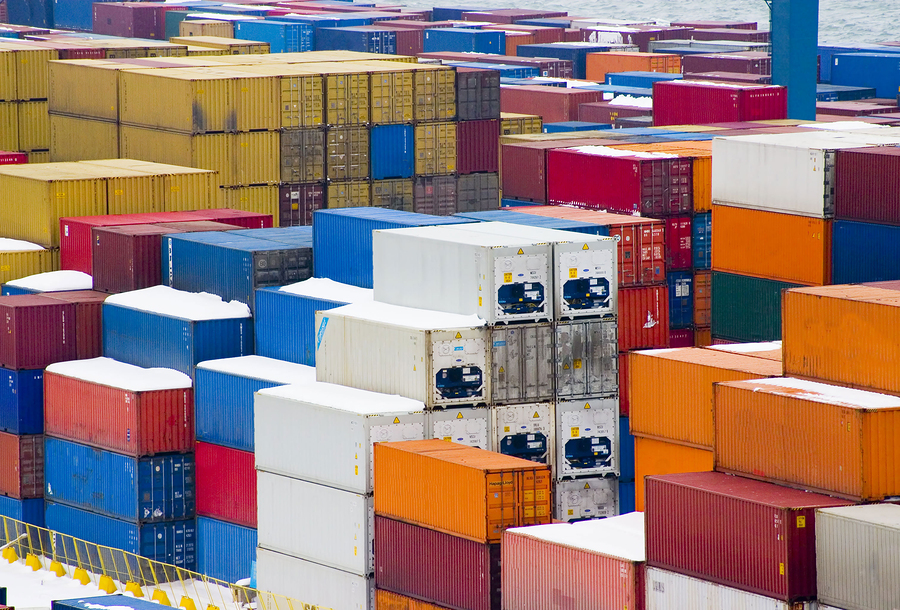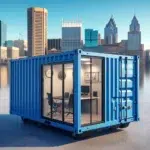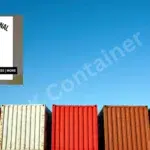Have you ever asked yourself, “Who buys shipping containers?” The demand for shipping containers has been steadily increasing across various industries and businesses. These versatile structures have become popular due to their practicality, durability, and cost-effectiveness.
In this blog post, we will explore the industries and businesses that buy shipping containers, popular uses for these containers, important factors to consider when buying them, the benefits of purchasing used containers, how to find reputable sellers, important considerations for storage purposes, types of shipping containers, and where to buy them. By understanding these aspects, you’ll gain valuable insights into the world of shipping containers and make informed decisions based on their specific needs.
Industries and Businesses that Buy Shipping Containers
Shipping containers are purchased by a wide range of industries and businesses. For example, construction companies often require on-site offices and storage units, which can be easily created by converting shipping containers.
By utilizing shipping containers, construction companies can save time and money on building traditional structures. Moreover, shipping containers are used in the manufacturing industry for storing raw materials, equipment, and finished products.
The secure and weather-resistant nature of shipping containers makes them ideal for protecting valuable goods. Retail businesses also utilize shipping containers as pop-up shops and temporary structures for events and promotions.
These containers provide a unique and customizable space for businesses to showcase their products. Additionally, shipping containers are used in the agriculture industry for storing tools, equipment, and produce.
They offer a cost-effective solution for farmers to keep their resources protected and organized. Furthermore, shipping containers are in demand in the healthcare sector, where they are used for mobile clinics, laboratories, and disaster relief centers.
These containers can be easily transported to areas in need of medical facilities. Educational institutions also benefit from shipping containers by using them as portable classrooms, providing a cost-effective and sustainable solution for schools facing space constraints. These classrooms can be quickly set up and moved to different locations as needed.
Lastly, both commercial and residential customers buy shipping containers for storage purposes, such as storing personal belongings or excess inventory. The versatility and durability of shipping containers make them an attractive option for individuals and businesses in need of additional space.
Popular Uses for Shipping Containers
Shipping containers have revolutionized the way we think about temporary and permanent structures. They are widely used across various industries for different purposes.
In the construction industry, shipping containers are often converted into construction site offices, storage units, and even temporary housing for workers. A construction company may use shipping containers as on-site offices, equipped with insulation, windows, and electrical connections, to provide a comfortable workspace for their staff.
These containers can also be transformed into storage units, allowing construction companies to keep their tools, equipment, and materials secure and organized on-site. Moreover, shipping containers have become a popular choice for retail businesses looking for unique and eye-catching spaces.
They can be converted into retail stores, cafes, restaurants, and even art galleries. These containers offer an innovative and customizable environment for businesses to showcase their products and attract customers.
Shipping containers are also used in the healthcare sector as mobile clinics, laboratories, and disaster relief centers. These containers can be equipped with medical equipment and supplies, allowing healthcare professionals to provide essential services to communities in need. The versatility and mobility of shipping containers make them a valuable asset in emergency situations.
Factors to Consider When Buying a Shipping Container
When purchasing a shipping container, there are several important factors to consider. One of the primary factors is the size of the container.
Standard sizes of 20-foot and 40-foot containers are the most common options available. However, there are also smaller and larger containers available to meet specific needs.
It’s crucial to determine the appropriate size based on the intended use and available space for placement. For instance, if a business needs a shipping container for on-site storage, a smaller size might be sufficient, whereas a construction company might require a larger container for storing equipment and materials.
Another critical factor is the condition of the container. There are different condition options available, including new, used (with various gradings), cargo-worthy, wind- and watertight, and as-is. The condition of the container will determine its durability and suitability for the intended purpose.
It’s essential to carefully evaluate the condition of the container, considering factors such as rust, dents, and structural integrity. The previous use of the container should also be examined to ensure compatibility with the intended purpose.
If a container was previously used for transporting hazardous materials, it might not be suitable for storing food products. It is advisable to buy from reputable sellers who provide necessary guarantees and certifications.
Reputable sellers will ensure that the containers are in good condition and meet industry standards. Additionally, transportation logistics and costs should be taken into account when considering the purchase of a shipping container.
Buyers should consider how the container will be transported to its final destination and the associated costs. Some sellers may offer delivery services, while others may require the buyer to arrange transportation. By considering these factors, buyers can make informed decisions and choose the right shipping container for their specific needs.
Benefits of Buying a Used Shipping Container
Purchasing a used shipping container offers several benefits for buyers. One of the primary advantages is cost-effectiveness.
Used containers are generally more affordable compared to new ones, making them an attractive option for individuals and businesses on a budget. The cost savings can be significant, especially when buying multiple containers.
Opting for used containers is also environmentally friendly. By reusing containers, buyers are contributing to recycling efforts and reducing waste.
This sustainable approach helps minimize the environmental impact of container production and disposal. Used containers are readily available in the market, making it easier to find and purchase them.
There are numerous sellers, both online and offline, offering used containers in various conditions and sizes. This accessibility allows buyers to find the right container for their needs without much hassle.
Furthermore, shipping containers are built to withstand harsh conditions, so even when purchased used, they can still be used for a long time with proper maintenance. These containers are designed to be durable and weather-resistant, making them suitable for a wide range of applications.
With regular maintenance and repairs, a used container can provide reliable service for many years. Another benefit of buying used containers is the ability to modify them to suit specific requirements.
Buyers can add windows, doors, insulation, electrical connections, or any other features necessary for the intended use. These modifications can transform a standard shipping container into a functional and tailored space. Purchasing used shipping containers offers all kinds of cost savings, environmental benefits, and customization options for buyers.
Understanding Shipping Container Conditions
Understanding the different conditions of shipping containers is crucial when buying them. The condition of a container determines its suitability for specific purposes. Two common conditions are Cargo Worthy (CWO) and Wind & Watertight (WWT).
Cargo Worthy containers are in good condition and suitable for international shipping, as they meet the standards set by shipping authorities. These containers have been inspected and certified to be structurally sound and able to protect the cargo from the elements during transportation.
Wind & Watertight containers are also in good condition, but they may not meet the stringent requirements of international shipping. However, these containers are still structurally sound and weather-resistant, making them suitable for storage and on-site use.
It’s important to note that appearance alone does not determine the cargo-worthiness of a container. A container may have some dents, scratches, or surface rust but still be considered cargo-worthy if it meets the required structural and weatherproofing standards.
Container conditions are crucial, especially for export purposes, as they ensure the safety and integrity of the cargo being transported. Buyers should carefully inspect the containers and ask for certifications, such as CSC plates, to ensure that they are purchasing containers that are suitable for their specific needs. By understanding shipping container conditions, you can make an informed decision and choose containers that meet your requirements.
7 Considerations When Using Containers for Storage
When buying a shipping container for storage purposes, there are seven important considerations to keep in mind:
- First and foremost, ensuring sufficient space for both the container and the delivery truck is crucial to facilitate easy transportation and placement.
- Buyers should measure the available space and consider any obstacles or restrictions that may affect the delivery and placement of the container.
- Verifying that the container’s doors are square is also essential for proper opening and closing. Buyers should check that the doors are not warped or misaligned, as this can cause difficulties in accessing the container and using it for storage.
- While shipping containers are generally waterproof, proper maintenance is required to prevent rust and decay over time. Buyers should inspect the container for any signs of damage, such as rust spots or holes, and address them before using the container for storage.
- Regular cleaning and painting can also help extend the lifespan of the container and maintain its appearance. Surveying the container is unnecessary for storage purposes unless it is intended for export.
- Buyers who plan to export the container should have it surveyed by a certified inspector to ensure that it meets the necessary standards and regulations. With proper maintenance, the lifespan of a container can reach around 25 years.
- Buyers should follow the manufacturer’s guidelines for maintenance and take proactive measures to protect the container from harsh weather conditions and potential damage.
In considering these storage factors, you can make the most of your shipping container for storage purposes and ensure its longevity.
Types of Shipping Containers
There are different types of shipping containers available to cater to various needs:
- Standard containers, also known as dry containers, are the most common type and are suitable for general cargo transportation. They come in standard sizes of 20 feet and 40 feet and are widely used in various industries.
- High cube containers are taller than standard containers and provide extra vertical space, making them ideal for oversized cargo or applications that require more headroom. These containers are often used for transporting tall machinery or goods that cannot fit within the standard container height.
- Specialty containers are designed for specific purposes and cargo types. For example, refrigerated containers (reefers) are equipped with cooling systems and are used for transporting temperature-sensitive goods, such as food and pharmaceuticals.
- Flat rack containers have collapsible sides and are used for oversized or irregularly shaped cargo, such as machinery or vehicles.
- Open-top containers have removable roofs, allowing for easy loading and unloading of cargo that cannot fit through the standard container doors. These containers are commonly used for transporting goods that are taller than the standard container height.
Shipping containers can be purchased from various sources, including online platforms like eBay and Craigslist, local dealers, or specialized shipping container companies. Each source has its advantages and considerations. Online platforms provide convenience and a wide range of options, while local dealers may offer personalized service and the opportunity to physically inspect the containers.
Wrapping It All Up
Now you know the answer to the question: “Who buys shipping containers?” The demand for shipping containers continues to grow as more industries and businesses recognize their practicality and versatility.
Shipping containers are purchased by construction companies, manufacturing facilities, retail businesses, agricultural operations, healthcare facilities, educational institutions, and both commercial and residential customers.
Ready to start your next custom container or commercial container project? K&K has you covered. Request a quote now or call us here for more info.
